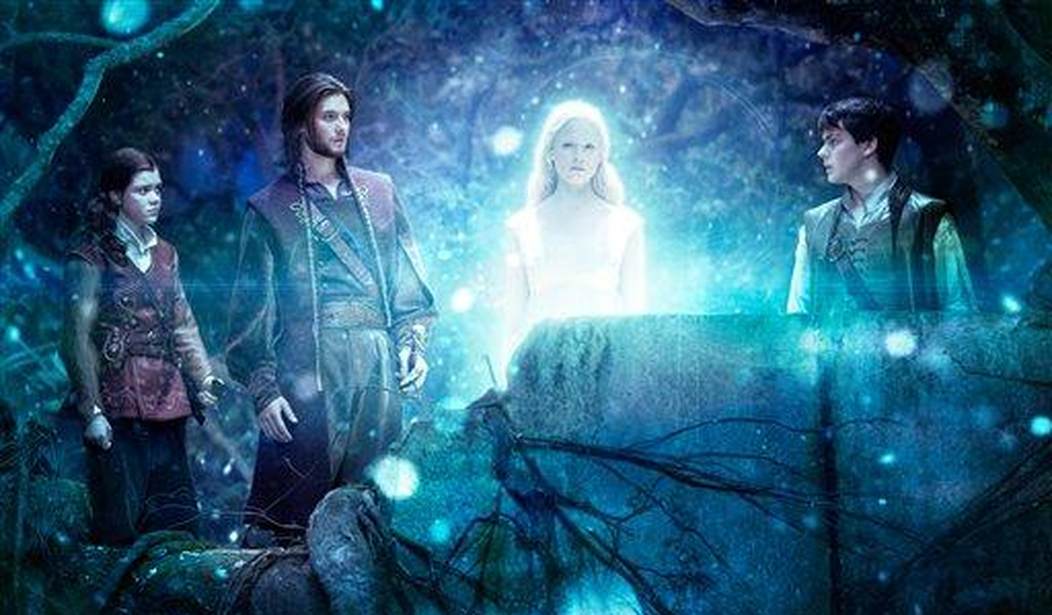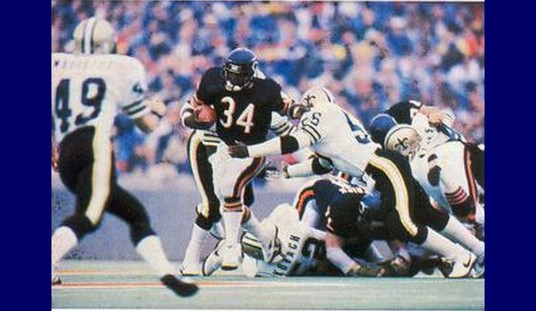There’s been a low rumbling on the internet about Netflix’s adaptation of C.S. Lewis’s globally beloved book series “The Chronicles of Narnia.” It was announced in 2018 that the streaming service had acquired the rights to the brand and there have been various articles addressing updates on the progress of this work, but instead of excitement and anticipation, fans of the magical world of Aslan talk as if they’re watching a prisoner be marched up to the guillotine.
And they have every right to.
I am a massive fan of C.S. Lewis myself. My mother used to read “The Chronicles of Narnia” to me as a child and my grandmother bought the BBC’s live adaptation of the series on VHS (I’d argue these are the best live-action versions so far), which I’d watch whenever I spent time at her house. I continued to read them as an adult, alongside anything else Lewis wrote that I could get my hands on, including his essays. My Audible account is filled to the brim with Lewis’s works, and I listen to “The Screwtape Letters” and “The Great Divorce” at least once a year.
You’re not going to find many people who are bigger fans of Jack than me. You’ll often find me quoting him in my articles here on RedState or taking one of his thoughts or ideas and using it as a lens through which to describe my own thoughts on something. He is, to me, the mentor I never met.
I tell you all this because I want you to know where I’m coming from when I talk about my views on Netflix’s adaptation of the Narnia story into an audio/visual experience.
Do I think Netflix has the ability to make a decent series or movies based in the land of Narnia and its surrounding countries, expanding all the way out to where the waves grow sweet, Reepicheep?
Yes, but I think they’ll choose not to because doing so would be a modern sin. Modernity will not let it happen. It can’t because everything C.S. Lewis is and everything he created is something that the social justice community and the social dictators who run Hollywood absolutely despise.
Let’s take a look at some things that will not fly in modern society that Narnia features prominently.
My two favorite books in the series are “The Voyage of the Dawn Treader” and “The Horse and His Boy.” Both of these stories would be considered “problematic” by today’s modern sentiments, especially the latter.
“Dawn Treader” is the story of Prince Caspian and a crew sailing east of the sea, looking to find seven lords of Narnia that were exiled after the murder of his father and the corruption of the kingdom by his uncle, King Miraz. Along the way, Caspian and the gang locate the lords, reconquer lost Narnian territory from slavers, and Caspian even finds a wife in the daughter of a star. One character, Eustace, goes from being a spoiled and immature brat to a kind and decent man. All of this is done with the guiding hand of Aslan, the god-figure of Narnia.
“The Horse and His Boy” is the story of a talking horse named Bree and a boy named Shasta. Bree is from Narnia, but Shasta’s origins are kept a mystery. Both are trapped in the country of Calormen, a middle-eastern inspired country. During a chance meeting, both conspire to flee back to Narnia, and along the way, they meet another horse/human duo fleeing to Narnia, with the human turning out to be a young Calormen noblewoman named Aravis looking to escape an arranged marriage to a horrible noble. The story culminates with a battle of western armies vs eastern armies, and Shasta learns his real name is Cor and he’s the son of Lune, the king of Archenland, an ally to Narnia.
Both of these stories feature everything that the modern left hates. It has traditionally masculine characters, English-inspired cultures winning over Muslim-inspired cultures, colonization, and actual morals.
There are moments in these stories that would cause no end of outrage. Aravis, for instance, is clawed by a wild lion that turns out to have been Aslan. The lion explains that the wounds are repayment for the wounds her servant received after Aravis drugged her so she could escape, carelessly abandoning the servant to whatever fate her father had in store for her. This wouldn’t fly in modern society, as women cannot be seen having faulted and punished, especially by a male character.
Narnia is filled with various things that would infuriate the Hollywood bubble, but none would infuriate them more than the Lion. Aslan is an allegory for Christ and every story revolves around this concept. Lewis’s intent with Aslan was to teach children the mind and love of Jesus.
This is best summed up in something of a fourth-wall-breaking quote from “Dawn Treader,” where Aslan himself makes reference to this:
“There I have another name. You must learn to know me by that name. This was the very reason why you were brought to Narnia, that by knowing me here for a little, you may know me better there.”
Modern Hollywood could not allow this, of all things, to survive in a retelling. I anticipate many things to be “reimagined.” Most of, if not all the men in the story will lose their masculine traits or these traits will be vilified in some way. The women of the story will become the true heroes, constantly getting the better of their male counterparts in some way. Stories will be watered down to the point where the point of the story is absolutely lost.
But more than anything, they will do what Jadis the White Witch did to Aslan. They will bind him, mock him, desecrate him, and murder him. The character of Aslan that you grew up knowing, that Lewis intended, and helped you understand Christ (as it did for me) will be gone, replaced with a jackass wearing a lion’s skin and claiming himself as the creator and god of Narnia.
Hollywood is perfectly capable of staying true to Narnia technologically and literally, but it’s chained like a slave to modern politics and social justice. It can’t make Narnia because Narnia is everything it’s trying to destroy.
They did it J.R.R. Tolkien, Andrzej Sapkowski, and Robert Jordan. There’s no reason to think they’d respect Lewis.















